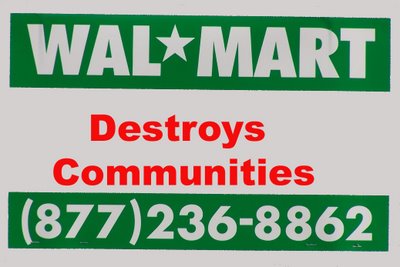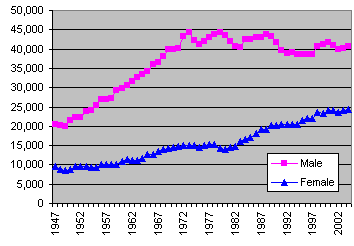This helps Wal-Mart because it's not really worth prosecuting the 'little guy' even though Sam Walton wanted every shoplifter prosecuted.
J. P. Suarez, who is in charge of asset protection at Wal-Mart, said it was no longer efficient to prosecute petty shoplifters. “If I have somebody being paid $12 an hour processing a $5 theft, I have just lost money,” he said. “I have also lost the time to catch somebody stealing $100 or an organized group stealing $3,000.”It will also help small town police departments. Would Saranac Lake need to hire another police officer just to cover a Wal-Mart Supercenter?
It may also serve to placate small-town police departments across the country who have protested what the company has called its zero-tolerance policy on shoplifting. Employees summoned officers whether a customer stole a $5 toy or a $5,000 television set — anything over $3, the company said.
At some of the chain’s giant 24-hour stores, the police make up to six arrests a day prompting a handful of departments to hire an additional officer just to deal with the extra workload.
"I had one guy tied up at Wal-Mart every day,” said Don Zofchak, chief of police in South Strabane Township, Pa., which has 9,000 residents and 16 officers. He said the higher threshold for prosecution “would help every community to deal with this.”
Maybe the SL Village Board or Village Manager should give Chief Zofchak a phone call and find out about his experiences with Wal-Mart and what it's cost his police department.



